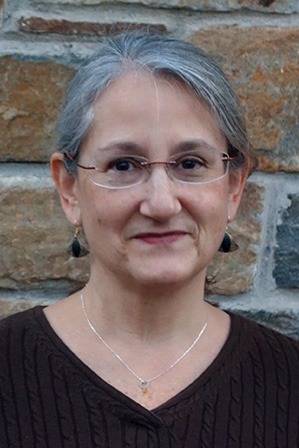DEIA Today: “We Can Walk and Chew Gum”
Letter from the Editor
BY SHAWN DORMAN

Advancing diversity, equity, inclusion and accessibility (DEIA) is one of the Biden administration’s top priorities, spelled out in part in two executive orders issued in 2021. The foreign affairs agencies, and in particular the State Department, have long been criticized for not being “representative of the American people,” a mandate from the Foreign Service Act of 1980.
For many decades, the topic of diversity has been explored and covered by The Foreign Service Journal. (See our Diversity Special Collection for links.) Yet, when DEIA took center stage two years ago, we have especially endeavored to spotlight these efforts—including several full focus sections (September and October 2020; July 2021), plus articles and Speaking Out essays in other recent editions. We estimated that by June 2022, there might be some real progress to report, which is this issue’s theme.
But wait, what about Russia’s war on Ukraine, the rogue actions of China, the ongoing global pandemic and supply chain issues, and other urgent foreign policy challenges? In the face of all that’s going on in the world, how can we focus on DEIA in the Foreign Service?
Chief Diversity and Inclusion Officer Gina Abercrombie-Winstanley was asked just that in a discussion with AFSA President Eric Rubin during an April 5 Inside Diplomacy event hosted by AFSA. The CDIO’s response was characteristically no-nonsense: “We can walk and chew gum.” Ambassador Rubin repeated those words, adding, “If not now, when?”
That discussion is the basis for our lead story, “The Office of Diversity and Inclusion Turns One: An Interview with Ambassador Gina Abercrombie-Winstanley,” where the CDIO lays out a vision for advancing DEIA based on three tenets: intentionality, transparency and accountability.
USAID, too, has a new Office of Diversity, Equity, Inclusion and Accessibility headed by a newly appointed chief diversity officer, Neneh Diallo. The agency’s Payne Fellowship program turns 10 this year. The program was created in 2012 to attract emerging leaders from historically underrepresented groups to international development careers in the USAID Foreign Service.
In “The Payne Fellowship Network: Advancing DEIA at USAID,” we hear from FSO Mariela Medina Castellanos about a new employee group bringing together Payne Fellows to tackle obstacles to success in the Foreign Service.
In “The FAS Diversity Fellowship Answers: ‘Why Not?,’” Foreign Agricultural Service FSO Valerie Brown explains the new FAS initiative to expand diversity. And then we hear from FSO (ret.) Roy Glover on how he surmounted accessibility challenges in “A Foreign Service Career—Blindness Didn’t Stop Me.”
In “Supporting State’s LGBTQI+ Workforce,” FSO Thomas Coleman tells how the Secretary’s Office of Diversity and Inclusion is looking out for the interests of LGBTQI+ employees.
Clearly, progress is being made—even while we deal with the foreign policy crises of the hour.
And speaking of which, we are fortunate to hear from Ambassador Jim Pettit on a too-timely theme: “Moldova—Putin’s Next Target?” We hope he’s wrong, but we need to pay attention to the potentially vulnerable areas and frozen conflicts that could heat up again.
In the Speaking Out, “iMatch: Ready for Takeoff?,” Office Management Specialist Ubah Khasimuddin introduces us to a pilot bidding tool called iMatch that may or may not be ready for prime time.
In the FS Heritage, we get a crash course on “Why the Office of War Information Still Matters” 80 years after its creation. Public diplomacy historian Nicholas Cull traces the history and significance, and then FSO Williams (Bill) Martin and Daria Gasparini share the related story of “OWI and the ‘Battle of Sweden.”
We have a hefty and valuable Education Supplement for you this month, starting with a look at “Getting a Degree Overseas: An Option Worth Considering?” from Rebecca Grappo, M.Ed.
For that inevitable move back to the States, Charlotte Larsen offers tips for families on “Transitioning FS Kids to U.S. Public Schools: What You Need to Know.” And John Naland, who needs no introduction, brings us advice on “How to Qualify for In-State College Tuition,” a quickly changing and improving landscape for FS families.
Keep the articles and letters coming. Write to us at journal@afsa.org.

